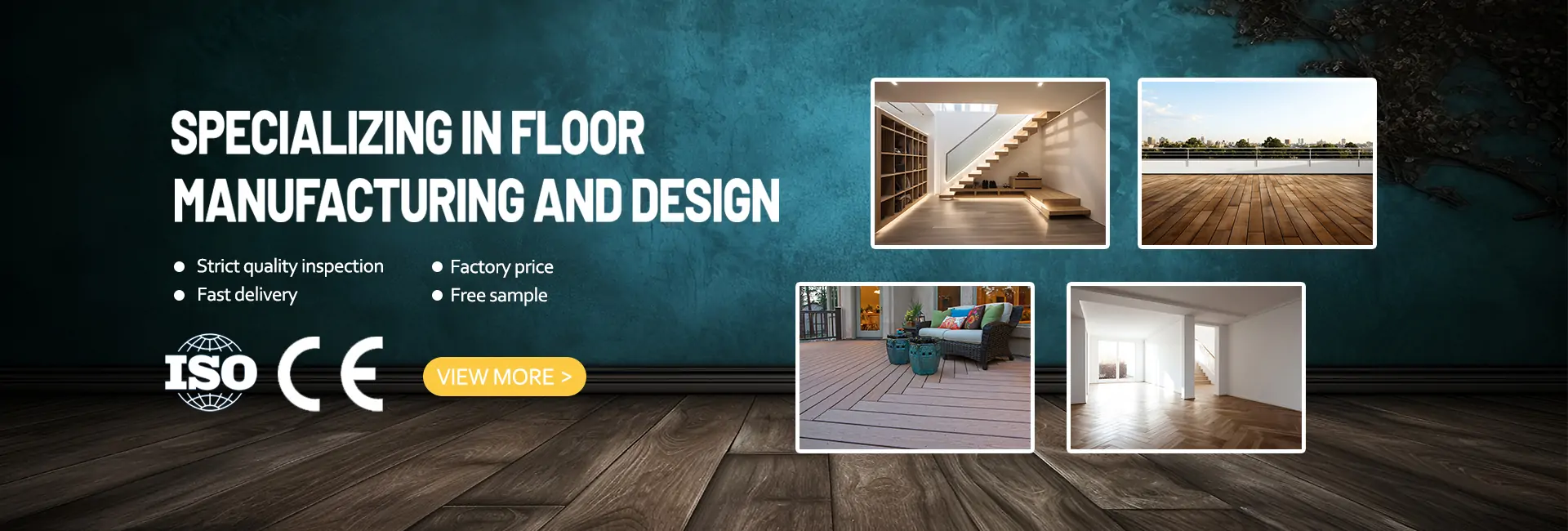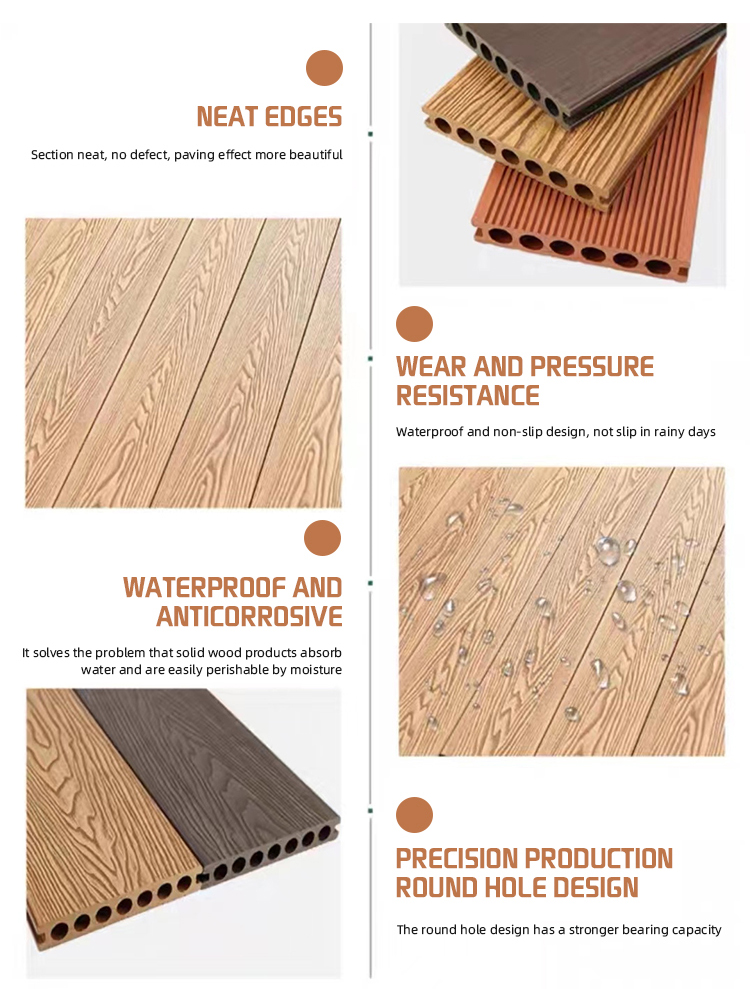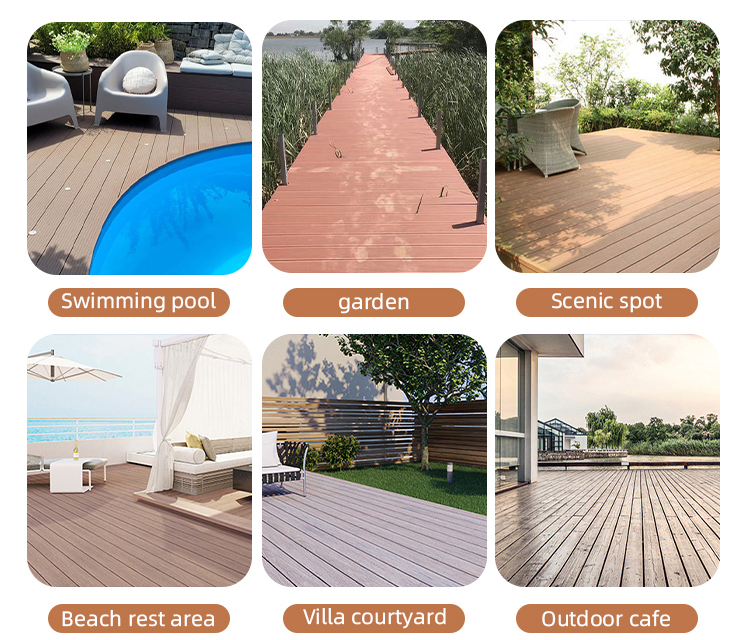
WPC composite decking, also known as wood-plastic composite decking, is a type of decking material made from a combination of wood fibers, plastic, and chemicals. It is designed to mimic the appearance of natural wood but provides added durability and resistance to rot, weathering, and insect damage.
WPC composite decking offers several advantages over traditional wooden decking. It is low-maintenance, requiring only occasional cleaning with water and mild soap. It does not need to be stained or sealed like wood, saving time and money on maintenance. It is also resistant to fading, splintering, and warping, making it suitable for outdoor use in various climates.
Additionally, WPC composite decking is eco-friendly as it comprises recycled materials and does not require the harvesting of trees. It is also considered safer as it does not contain chemicals or toxins that may leach into soil or water.
There are various brands and types of WPC composite decking available, offering different colors, finishes, and textures to suit different design preferences. It is often installed using hidden fasteners for a seamless and professional look.
Overall, WPC composite decking is a popular choice for homeowners who want the natural look of wood without the high maintenance requirements or susceptibility to damage.

Features:
1. Dimensional stability, longevity, natural feel
2. Stable over a wide temperature range, weather-resistant
3. High impact resistant
4. Environmentally friendly, recyclable
5. Board range of finishes and appearance
6. Easily produced and easily fabricated
7. Contains no toxic chemicals or preservatives
8. Resistance to rot and crack
9. Moisture resistant, low flame spread
10. Outstanding screw and nail retention

WPC decking can be used in a variety of scenarios, both residential and commercial. Here are some common usage scenarios for WPC decking:
1. Outdoor decks and patios: WPC decking is commonly used to create outdoor areas for relaxation and entertainment. It can be installed around swimming pools, on terraces, or as a platform for outdoor furniture.
2. Balconies and rooftops: WPC decking is a popular choice for balconies and rooftop spaces. Its durability and resistance to weathering make it ideal for areas exposed to the elements.
3. Boardwalks and walkways: WPC decking is often used to create boardwalks, walkways, and pathways in parks, gardens, and other public spaces. Its slip-resistant properties and low maintenance requirements make it a practical choice for high-traffic areas.
4. Commercial and hospitality settings: WPC decking is commonly used in commercial spaces such as restaurants, cafes, and hotels. It can create a stylish and inviting outdoor seating area for customers.
5. Residential gardens and landscapes: WPC decking can be used to transform a residential garden or landscape. It can be used to create seating areas, decking platforms, or even raised garden beds.
6. Pool areas: WPC decking is a popular choice for pool areas because it is resistant to water, chlorine, and other pool chemicals. Its non-slip surface also adds an extra level of safety around the pool.
7. Marinas and docks: WPC decking is often used in marinas and docks due to its resistance to water, rot, and decay. It provides a stable and durable surface for boats and waterfront structures.
These are just a few examples of the many usage scenarios for WPC decking. Its versatility, durability, and low maintenance requirements make it suitable for a wide range of outdoor applications.
Name: Jinna
Mobile:8613075361376
Tel:8613075361376
Whatsapp:008613075361376
Email:jinna@ton-top.com
Add:Northwest corner of Kuixing Street, Hanlin Road, Chiping District, Shandong Province